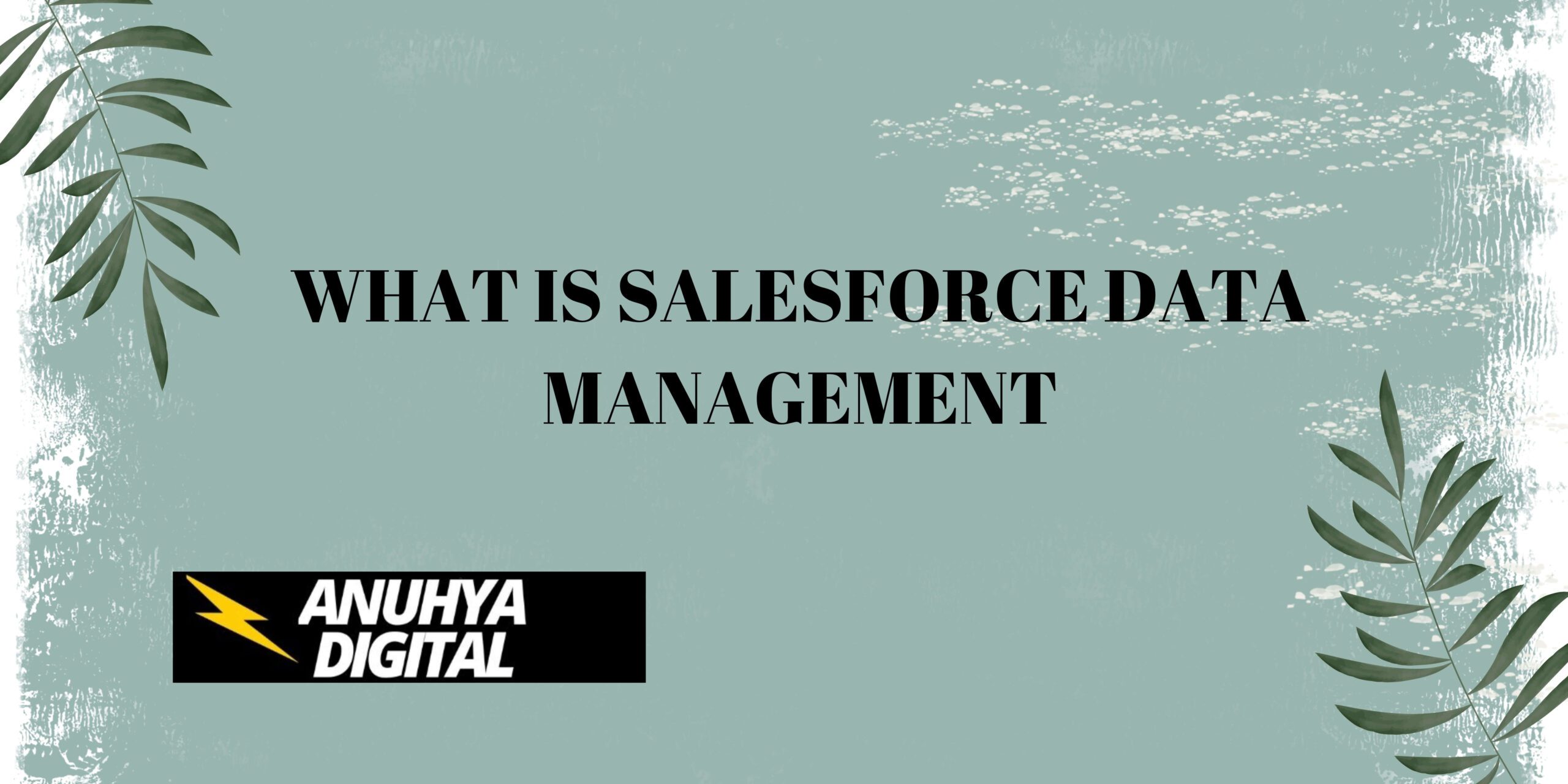In our previous blog post we had discussed about What is Validation Rules in Salesforce. In these blog post we discuss about What is Salesforce Data Management
What is Salesforce Data Management ?
Salesforce data management tool is the mass transfer. it is user transfer ownership of the records from one user to another user. we can transfer various standard objects like accounts, contacts, leads and streaming channels etc..and all about using custom objects.
Salesforce data management tool
Salesforce data managements tools are used to key role streaming various tasks
- Mass Transfer Records:Mass transferring records involves shifting ownership from one user/queue to another. This tool supports transferring records based on owner, criteria, or both.
- Mass Delete Records: With this tool, you can efficiently delete multiple records in bulk. However, it’s crucial to exercise caution as deleted records cannot be recovered from the Recycle Bin.
- Mass Transfer Approval Requests: This tool allows you to transfer or delete multiple approval requests simultaneously. You can filter requests based on criteria and choose to transfer them to a new user or remove them altogether.
- Mass Update Addresses: Mass updating addresses lets you modify the country and state/province fields across various records with standard address fields. This includes addresses on accounts, contacts, leads, and more.
- Mass Reassign Account Teams: With this tool, you can add, remove, or replace team members and adjust roles for multiple account teams. Additionally, you can determine the access level for opportunities, accounts, and cases.
Why is Salesforce Data Management Important?
Effective data management is critical for maximizing the value of your Salesforce investment and achieving your business objectives. Here are some reasons why Salesforce data management is important:
- Data-driven decision-making: Accurate and reliable data is essential for making informed business decisions and driving strategic initiatives.
- Enhanced productivity: Well-organized and easily accessible data improves user productivity by enabling efficient data retrieval and analysis.
- Improved customer experience: Salesforce data management ensures that customer information is up-to-date and consistent, leading to better customer service and satisfaction.
- Regulatory compliance: Proper data management practices help ensure compliance with data privacy regulations such as GDPR, CCPA, and HIPAA.
- Reduced costs and risks: Effective data management helps minimize data errors, redundancies, and security breaches, resulting in cost savings and risk mitigation.
We Want to more About Salesforce data managment Click here
F&A
1. What is data management in Salesforce?
A. Data management in Salesforce involves processes and strategies for efficiently handling and maintaining data within the platform. It includes activities such as data import, export, cleansing, deduplication, validation, security, and ensuring data integrity
2. How does Salesforce handle data storage and limits?
A. Salesforce provides data storage based on storage allocations, which vary depending on the edition and additional storage purchases. Organizations can monitor data storage usage through Salesforce’s built-in storage usage tools.
3. What are the differences between SOQL and SOSL in Salesforce?
A. SOQL (Salesforce Object Query Language) can query any type of field and perform DML operations on query results, while SOSL (Salesforce Object Search Language) can only query on email, text, or phone fields and cannot perform DML operations on search results
SOQL can be used in classes and triggers, but SOSL can only be used in Classes
SOQL returns records, while SOSL returns fields.
4. What is the purpose of governor limits in Salesforce?
A. Governor limits in Salesforce are runtime limits that help prevent the platform from using too much space on a single organization’s data. They maintain performance and keep Salesforce running efficiently. To overcome governor limits, you can write efficient Apex code, change multi-trigger Apex code to single-trigger, write SOQL queries within FOR loops, or use Trigger Handler when writing Trigger logic in Apex.
5. What is the difference between a global class and a public class in Salesforce?
A. A global class is accessible across the Salesforce instance irrespective of namespaces.
A public class is only accessible within the corresponding namespace
In our next blog post we will discuss about What is Import Wizard in Salesforce

3 thoughts on “What is Salesforce Data Management”